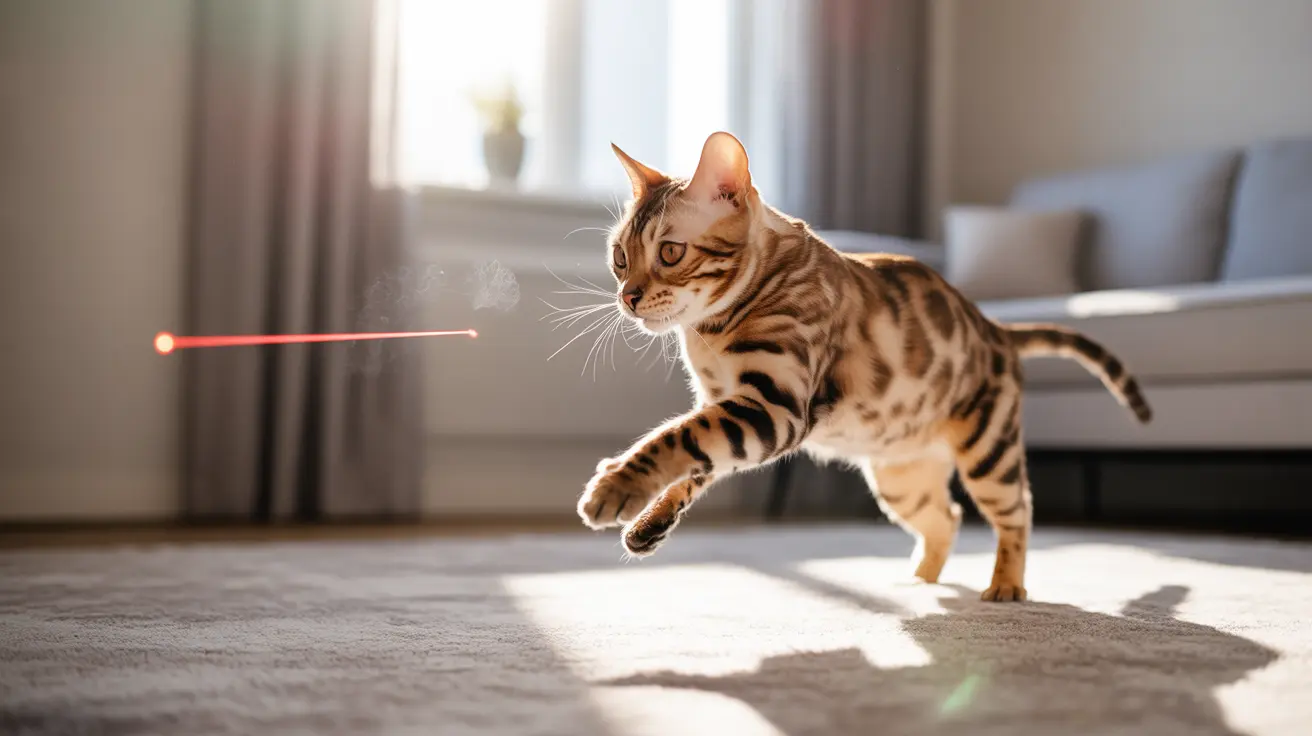Is your feline friend bouncing off the walls? Having a hyperactive cat can be both entertaining and challenging. While cats are naturally energetic creatures, excessive hyperactivity can disrupt your household peace and potentially indicate underlying issues that need attention.
In this comprehensive guide, we'll explore effective strategies to calm down a hyper cat while ensuring their physical and emotional needs are met. From understanding the root causes to implementing practical solutions, you'll learn how to help your energetic companion find their balance.
Understanding Why Cats Become Hyperactive
Cats can become hyperactive for various reasons, including pent-up energy, boredom, anxiety, or medical conditions. Young cats and certain breeds, like Bengals and Siamese, are naturally more energetic. However, sudden changes in activity levels might warrant closer attention.
Environmental factors such as lack of stimulation, irregular feeding schedules, or changes in routine can also trigger hyperactive behavior. Understanding these triggers is crucial for developing an effective calming strategy.
Essential Strategies for Calming Your Cat
Establish a Consistent Routine
Cats thrive on predictability. Set regular times for feeding, play, and rest to help regulate their energy levels. This structure helps reduce anxiety and excessive energy bursts.
Create an Enriching Environment
Provide vertical spaces, scratching posts, and hiding spots to help your cat feel secure and expend energy naturally. Consider installing window perches where they can safely watch birds and other outdoor activities.
The Power of Structured Play
Interactive play sessions are crucial for managing your cat's energy levels. Use wand toys, laser pointers, and puzzle feeders to engage their hunting instincts and provide mental stimulation.
Schedule multiple short play sessions throughout the day rather than one long session. This approach better matches your cat's natural activity patterns and helps prevent overstimulation.
Addressing Physical and Mental Needs
Exercise and Activity
Ensure your cat gets adequate physical exercise through climbing, jumping, and running activities. Cat trees, tunnels, and interactive toys can provide appropriate outlets for energy.
Mental Stimulation
Keep your cat's mind engaged with food puzzles, training sessions, and rotating toys. Mental exercise is just as important as physical activity in managing hyperactivity.
Natural Calming Solutions
Consider using cat-safe calming aids such as:
- Pheromone diffusers
- Calming music designed for cats
- Comfortable, quiet spaces for retreat
- Safe outdoor experiences (like a catio)
When to Seek Professional Help
If your cat's hyperactivity persists despite implementing these strategies, consult a veterinarian to rule out medical causes. Some conditions, like hyperthyroidism, can cause excessive energy and require medical treatment.
Frequently Asked Questions
What are the best ways to calm down a hyperactive cat at home?
The most effective methods include establishing a consistent routine, providing regular exercise through interactive play sessions, creating an enriching environment with climbing spaces and toys, and ensuring adequate mental stimulation through puzzle feeders and training activities.
Why is my cat suddenly so hyper and what causes this behavior?
Sudden hyperactivity can be caused by various factors including pent-up energy, boredom, anxiety, medical conditions, or changes in environment. If the behavior change is abrupt, consult a veterinarian to rule out medical issues.
How can playtime and toys help reduce hyperactivity in my cat?
Regular play sessions help expend energy, satisfy hunting instincts, and provide mental stimulation. Interactive toys and structured play periods can help redirect excess energy into appropriate activities.
Are there natural remedies or supplements that can calm down a hyper cat?
Natural options include pheromone products, calming treats containing L-theanine or chamomile, and environmental modifications like creating quiet spaces. Always consult your veterinarian before using any supplements.
When should I be concerned about my cat's hyperactivity and consult a vet?
Consult a veterinarian if your cat's hyperactivity is sudden, extreme, accompanied by other behavioral changes, or doesn't improve with environmental and behavioral modifications. This could indicate an underlying medical condition requiring treatment.
Conclusion
Managing a hyper cat requires patience, consistency, and understanding. By implementing these strategies and maintaining a structured environment, you can help your energetic feline find a calmer, more balanced state while ensuring they remain happy and healthy.






